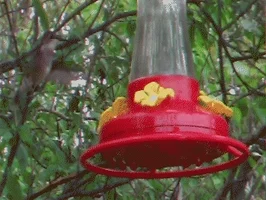Achieving
sustainable
and dignified life for all on an increasingly small planet
By Robyn Alders,
Richard Kock for Environmental Health News
 On March 5, 2017,
novelist Paulo Coelho wrote on Twitter that "Save the planet" is just
an expression of arrogance. The planet was here before we arrived, and will
kick us out if we don't respect it. He’s absolutely correct.
On March 5, 2017,
novelist Paulo Coelho wrote on Twitter that "Save the planet" is just
an expression of arrogance. The planet was here before we arrived, and will
kick us out if we don't respect it. He’s absolutely correct.
It’s not only us
humans who are in danger of being kicked out. Declines in wildlife populations
and habitats have occurred in parallel with an increasing human population and
expansion of ‘modern’ agriculture.
Most of the damage has been done in our lifetimes—a direct result of the post-second world war push for global food security.
Most of the damage has been done in our lifetimes—a direct result of the post-second world war push for global food security.
Large organizations were born to carry this responsibility, such as the Food and Agriculture Organization of the United Nations and the World Bank. These agencies developed a sophisticated program to support low- and middle-income countries with agriculture based on Western food systems and technologies, promoting increasing industrialization and production gene-trait linked plant and animal breeding for selective crops and livestock farming. This indeed led to massive increases in production and food availability.
This system ultimately
globalized, under the influence of a free flow of capital. Some would argue
that the ages of famine are over as a result, but are they? Unfortunately,
despite the abundance, malnutrition rates have not diminished significantly
with undernutrition remaining a significant problem in many low-income
countries, while obesity and micronutrient deficiencies have become major issues
globally.
So, we’re producing
more food but it’s not reaching us in a form that is good for us and it
certainly negatively impacts a range of terrestrial and marine ecosystems
globally. Agricultural externalities are massive.
The most serious being
loss of land and its productivity to most all other species, other than humans
and their domestic animals, resulting in catastrophic declines in biodiversity.
While the agricultural
process inevitably leads to pathogen generation and disease risk, degradation of
soils, pollution, and eutrophication are leading to estuarine dead zones from
agricultural outflows, extending hundreds of kilometers into the oceans.
Agriculture is also
incredibly thirsty and an estimated 90 percent of readily available fresh water
is needed to sustain our food systems, while precious deposits of phosphorous
and other minerals continue to supply the fertilizer factories, subsidized to
ensure the agri-machinery never rests.
We choose to believe
that the convergence of trends such as unprecedented human and domestic animal
population growth, rapidly changing environment, the emergence of
non-communicable diseases as major causes of mortality, climate change and
weather variability provide us with an opportunity to re-examine the ecosystems
that sustain human society.
The principle of
obtaining food from our environment is not wrong, where else would it come
from? It is how we do it that is negligent. It ignores our responsibilities to
renewal of resources and the rights of existence for all life forms on Earth.
We should focus on
sustainable food and nutrition security and conservation of biodiversity to
yield positive outcomes for both human and environmental health. Such an
approach helps us to focus on the health and nutritional requirements of
humans, domestic animals and wild animals in relation to local and global
ecosystems.
It may not be possible
to change the path that agriculture has taken, over the short term, but there
are steps that can be taken. Neglected or underutilized crops and sustainable
harvest of wild food have the potential to play a number of roles in the
improvement of food security.
These include: a way to reduce the risk of over-reliance on very limited numbers of major crops and animals; a way to increase sustainability of agriculture through a reduction in the carbon footprint of agriculture and maintenance of biodiversity; a contribution to food quality; and a way to preserve and celebrate cultural and dietary diversity.
These include: a way to reduce the risk of over-reliance on very limited numbers of major crops and animals; a way to increase sustainability of agriculture through a reduction in the carbon footprint of agriculture and maintenance of biodiversity; a contribution to food quality; and a way to preserve and celebrate cultural and dietary diversity.
Dietary diversity and
reduced greenhouse gas emissions per kilogram of animal-source food produced
can be promoted through the consumption of all edible parts of the carcass,
including highly nutritious offal.
In our recent paper, we argue that adopting a nutrition-sensitive landscape
approach would improve consumer understanding of food systems, nutrient cycles,
ecosystems services and potentially bolster links between dietary diversity and
biodiversity. This argument is based on over 50 years of combined on the ground
research in Africa, Asia, Europe and Oceania.
Robyn Alders is an
Associate Professor of Food and Nutrition Security at the University of Sydney
and Richard Kock is a Professor of Wildlife Health and Emerging Diseases at the
Royal Veterinary College, London.
For questions or
feedback about this piece, contact Brian Bienkowski at bbienkowski@ehn.org.